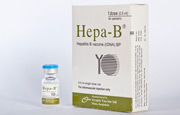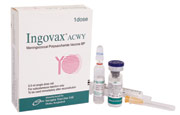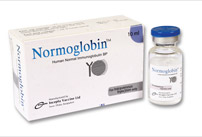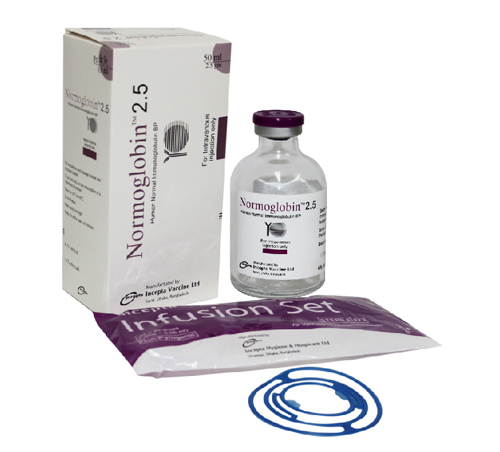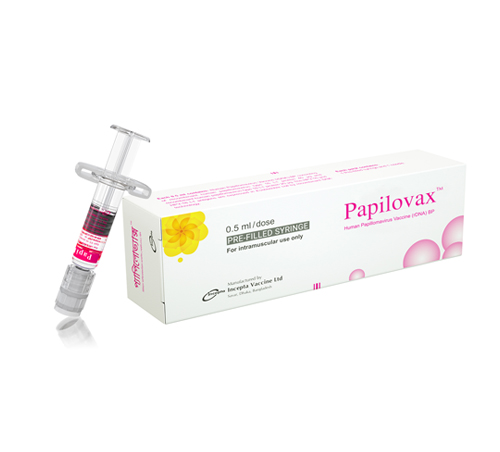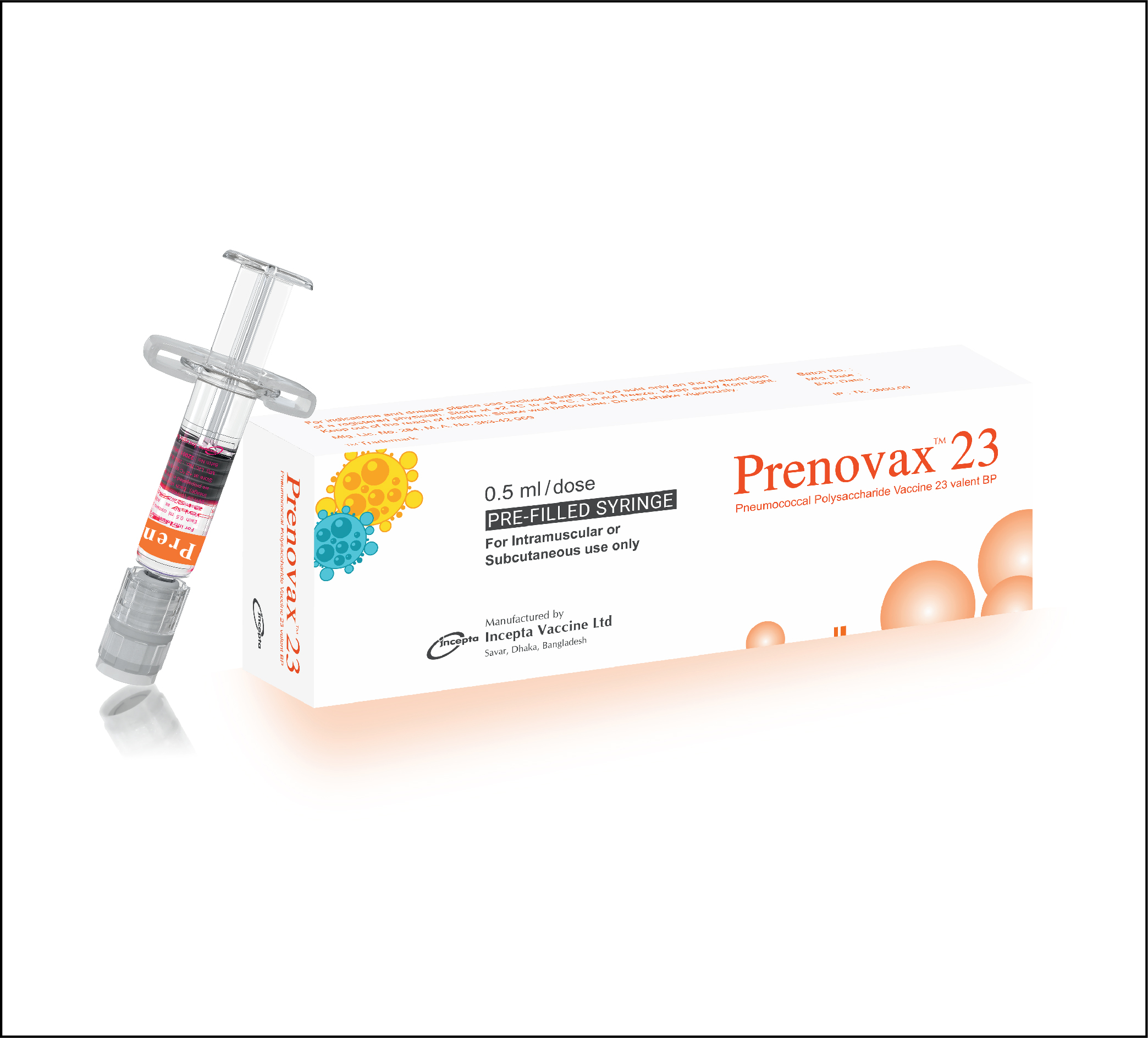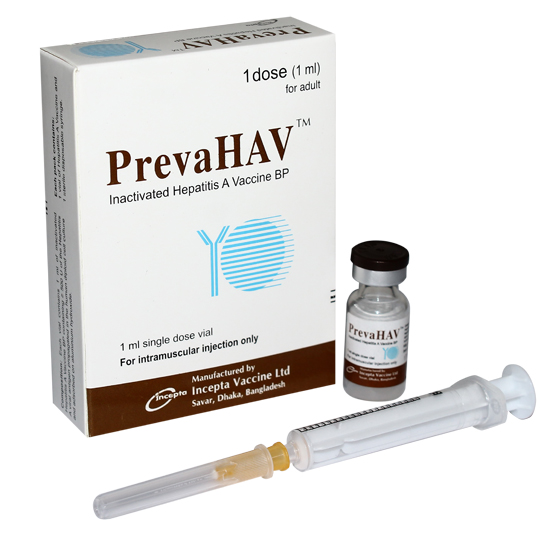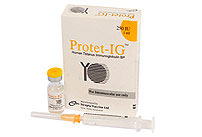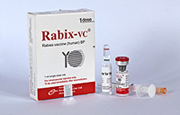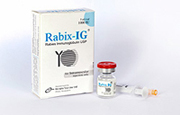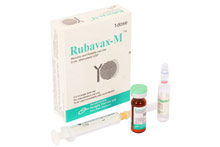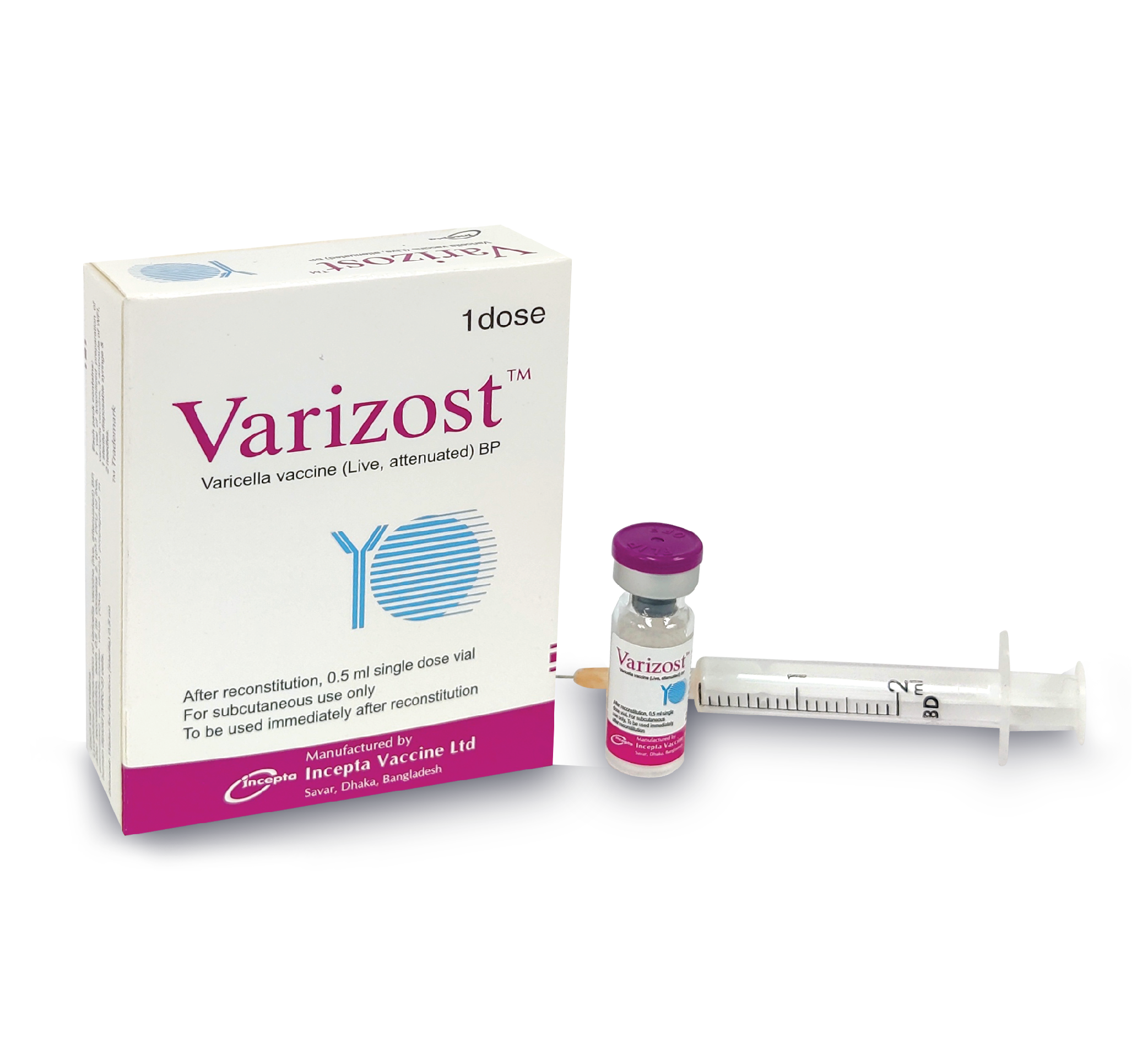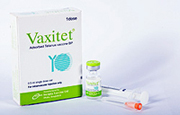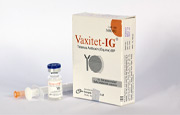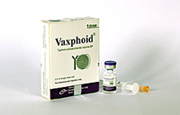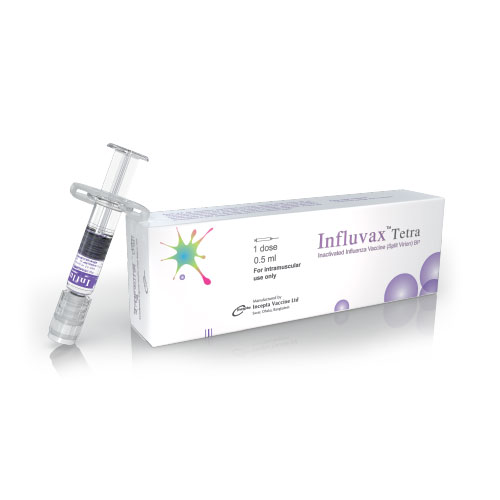Presentation:
Influvax Tetra: Each 0.5 ml contains: Inactivated Influenza Vaccine (Split Virion) BP as A/Victoria/2570/2019 (H1N1) pdm09 - like virus; A/Darwin/9/2021 (H3N2) - like virus; B/Austria/1359417/2021 (B/Victoria lineage) - like virus; B/Phuket/3073/2013 (B/Yamagata lineage) - like virus. Each strain contains 15 μg haemagglutinin. Viruses are propagated in SPF (Specific Pathogen Free) Chicken eggs.
Description:
Influvax Tetra is colorless or slightly whitish liquid made by spliting and inactivating influenza virus cultured by inoculating in the allantoic cavity of embryonated eggs in order to maintain antigenic activity. Influenza virus antigen is inactivated with formaldehyde and this vaccine complies with the WHO recommendation.
Indications:
Influvax Tetra is recommended for adults and children from six months and above, especially those having high risk of associated complications, such as children, senior citizens, those who are susceptible and those who are in influenza epidemic areas.
The vaccine can induce body to generate immunoreaction against influenza virus and can be used for the prevention of infection caused by influenza virus.
Dosage and Administration:
Annual influenza vaccination is recommended for persons 6 months of age and older. An intramuscular injection of the following dose and immunization of one dose is necessary in every year with same volume.
Age 6 months and older: single dose of 0.5 mL.
Some children will need 2 doses of influenza vaccine in the same season, administered at least 4 weeks apart. Children 6 months through 8 years of age who have never received seasonal influenza vaccine or for whom vaccination history is unknown.
Administration: Intramuscular injection (IM) on deltoid.
Influvax Tetra should be administered before the beginning of the influenza season or as required by the epidemiological situation. Vaccination should be repeated every year with an age-appropriate dose of vaccine of updated antigen composition.
Side Effects:
As with all medicinal products, this product may cause undesirable effects.
• There is possibility of local reactions such as redness, swelling and pain, or systemic reactions such as fever, chills, headache,
fatigue and vomiting. However, they usually disappear within 2-3 days.
• In rare cases, acute disseminated encephalomyelitis (ADEM) may occur.
• Fever, headache, convulsions, dyskinesia and consciousness disorder usually occur within 2 weeks following the
administration of the vaccine. When these symptoms are suspected, appropriate medical treatment should be available by
diagnosis with MRI and so on.
• Allergic reaction or anaphylactic shock may occur in very rare cases.
• Transient disorders of systemic and local nervous system may rarely occur. Palsy, neuralgia, cerebral hemorrhage or
inflammation of the nervous system (ex: Guillain-Barre syndrome) have been reported.
Precautions:
• Before use check this product visually for particles or discoloration. If either is present, do not use.
• The injection site is usually lateral upper arm and disinfected with ethanol or tincture of iodine. Repeated injections
at the same site should be avoided.
• Intravenous administration is prohibited
• It should be used cautiously for patient with hypersensitivity history.
• The tip of needle should not penetrate blood vessel.
• Do not mix with other vaccines in same syringe.
• Pre-filled syringes are disposable and should not be reused.
• Symptoms of high fever, convulsion appear after vaccination, they should consult physicians quickly • Antibody response in patients with endogenous or iatrogenic immunosuppression may be insufficient. • Influenza vaccine should be administered with current-year recommended strains.
• As with all injectable vaccines, appropriate medical treatment and supervision should always be readily available in
case of a rare anaphylactic event following the administration of the vaccine.
• Application of immunosuppressors may decrease or inhibit immunization reactions. Person who is administrated
immunoglobulin should be vaccinated the vaccine 1 month later.
Contraindications:
Examine subjects by history taking and visual inspection and if necessary by auscultation and percussion. Vaccination is prohibited when subject is diagnosed as one of the following cases.
• Febrile patient or person with malnutrition
• Patients with acute respiratory disease or other active infectious disease
• Patients in latent and convalescence period
• Person who showed anaphylaxis by the components of the product
• Person with hypersensitivity to egg, chicken, any other chicken component, and the product component
• Person who showed Guilan-Bare syndrome within 1 year from the previous influenza vaccination or person with neurological
disorders
• Person diagnosed with immunodeficiency disease
• Person in inappropriate condition to be vaccinated
However, if there is a possibility of influenza infection and it is determined that there is no concern for significant disorder due to
vaccination, subject may be vaccinated.
Use in Pregnancy and Lactation:
In Pregnancy
Inactivated Influenza vaccine (egg-derived) is known that it can be used in all pregnancy cycles regardless of the pregnancy stage. There are more safety data for second trimester and third trimester compared with the first trimester. In addition, according to data on the usage of inactivated influenza vaccine collected globally, no adverse effects of the vaccine on the fetus and maternity were reported.
In addition, no direct or indirect adverse effects related to reproductive toxicity and developmental toxicity were observed in animal studies conducted using this vaccine. However, clinical trials have not evaluated the safety of the pregnant women when administered this vaccine.
In Lactation
Inactivated Influenza vaccine (egg-derived) is known that it can be used to lactating women. Restricted data indicate that the vaccine is not known whether the product is excreted in human milk. However, there is no adequate study of vaccination in animals during lactation, and clinical trials have not evaluated the safety of nursing mothers when administered this vaccine.
Storage:
Store at temperature between +2 °C to +8 °C. Store in the original package to protect from light. Do not freeze. Freezing destroys activity. Do not use vaccine which has been frozen.
Commercial Pack:
Influvax Tetra: Each box contains 1 Pre-filled syringe of 0.5 ml Inactivated Influenza Vaccine (Split Virion) BP and 2 needles.



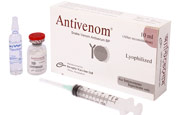
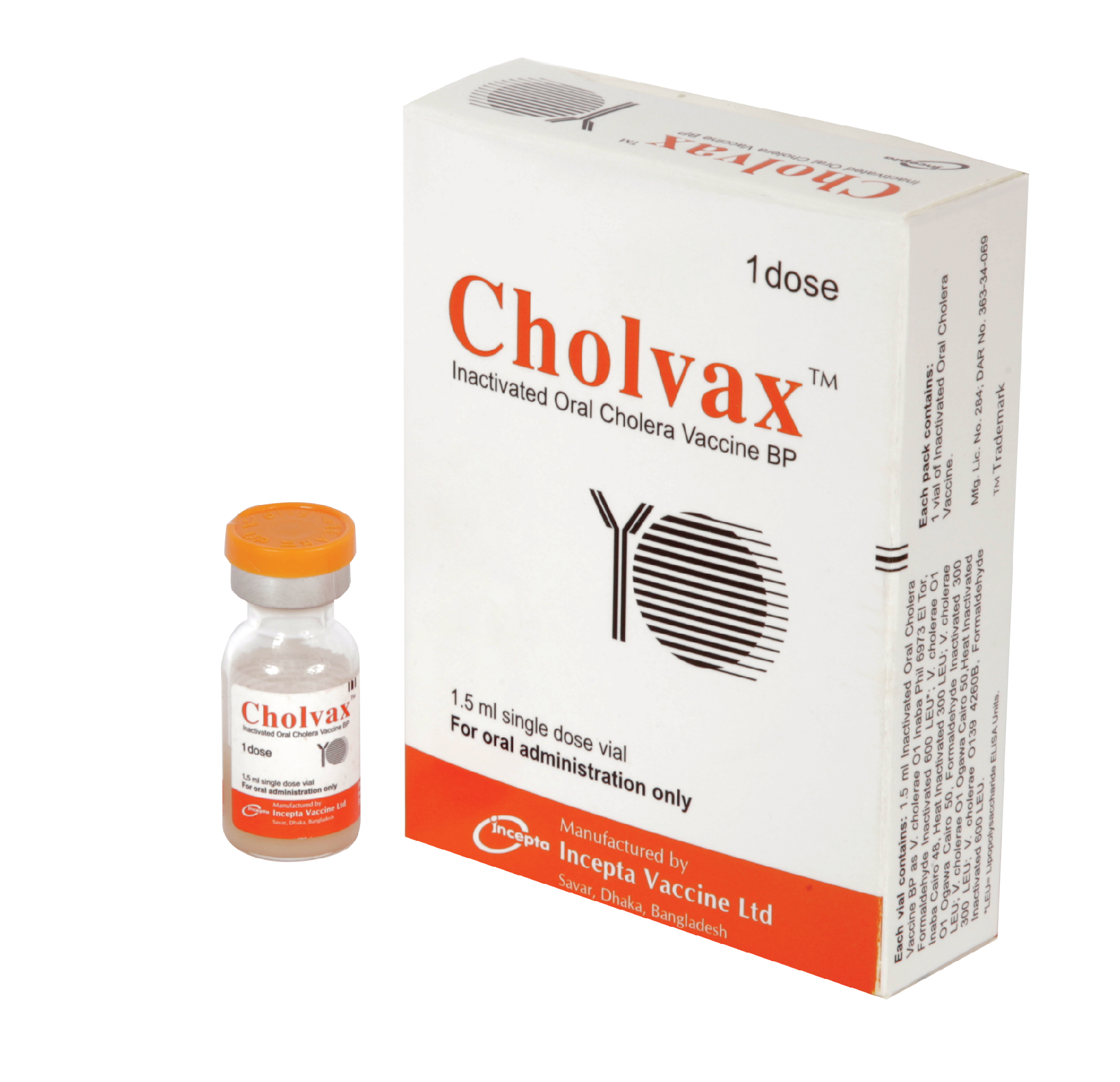
.png)
